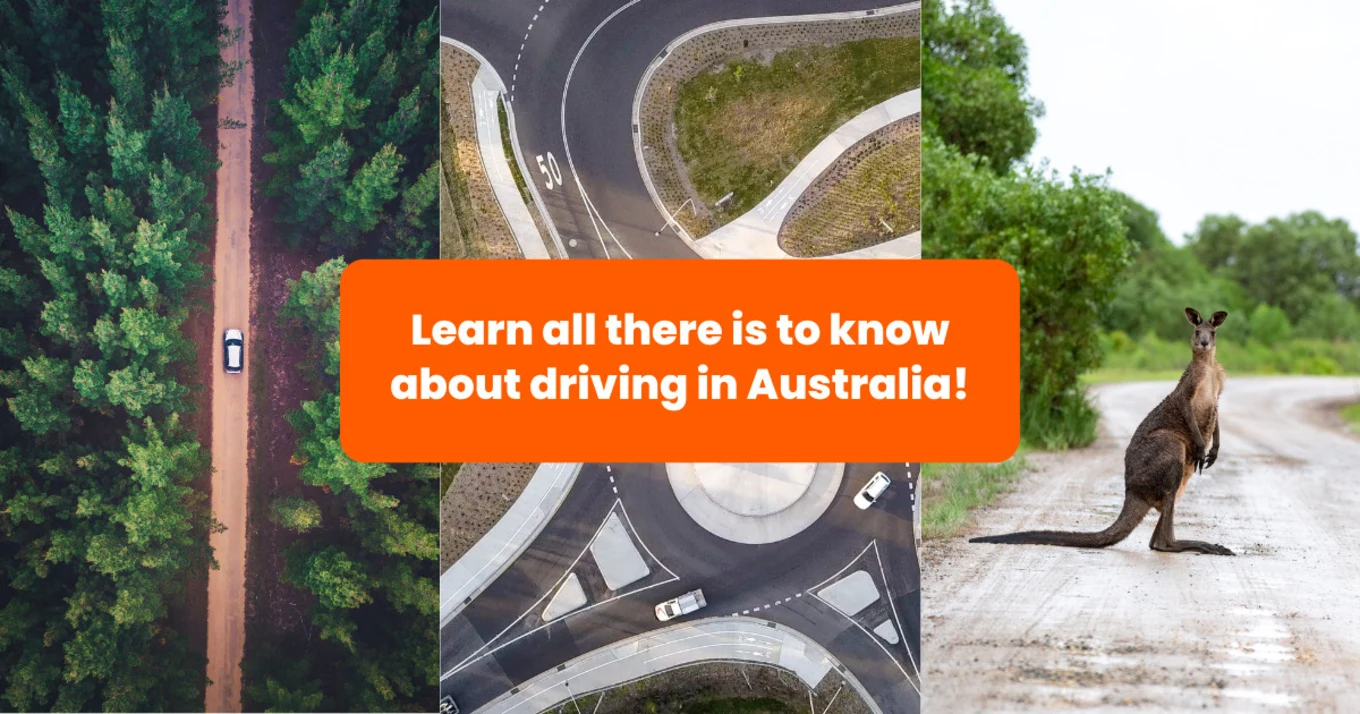Going on an extended Aussie holiday? Rent a car to get full control of your trip and visit the iconic sights and hidden gems. With your very own vehicle, you don’t have to plan your days around limited train and bus schedules. You can spend as much time (or as little) as you want at national parks, bayside villages, and beyond.
Enjoy 6% on us!
Enjoy a hassle Aussie trip with these Klook essentials!
🔥 Australia & New Zealand Essentials
🦘 Popular Attractions in Australia & New Zealand
✨ More Activities in Australia & New Zealand to explore
Before you hit the road, here are ten important things to remember when driving in Australia!
1. You can drive with your overseas driver’s license (in some cases)
Can’t wait to begin your Aussie road trip? Good news! You can enjoy driving in Australia on an international license or use your foreign driver’s license. Just make sure it’s valid, has a photo, and is in English. If it’s in a different language, you’ll have to carry an English translation with you or get an international permit. If it doesn’t have a photo, bring another photo ID.
In the Northern Territory, the rule is slightly different. Your license is valid as long as you haven’t been in the NT for over three consecutive months.
2. Remember to drive on the left side of the road
Like its neighbors NZ and Indonesia, people drive on the left side of the road and sit on the right side of the car in the Land Down Under. Aussie law also dictates that you must keep left unless you’re overtaking another vehicle.
If you’re used to driving on the right side of the road, one thing to keep in mind is that the incoming traffic will be coming on the side of your right shoulder. Learning how to drive in Australia takes some getting used to if you’re from a country that drives on the right!
3. There are unique road signs to learn
Once you’re driving in Australia, don’t be surprised to spot road signs that you probably won’t find anywhere else. Whether in Tasmania or Queensland, there’s a good chance you’ll see signs depicting kangaroos and cows getting close to cars. There are also signs that let you know there are upcoming movable bridges, dips, and trams ahead of you.
Just follow the directions on the signage, and you’re good to go. Learning how to drive in Australia means getting familiar with these unique signs.
4. Avoid accidents and fines by following simples rules
Connect your phone to your car, so you can answer calls and make commands hands-free. Australia has some of the toughest penalties in the world for people who text and drive. In Queensland, the fine is 1000 AUD, while in NSW, there are cameras that detect illegal phone use on the roads.
Another simple rule is to wear a seatbelt whenever the car isn’t parked. Drivers and passengers who don't comply can receive fines of up to 1078 AUD. Following the rules is key when learning how to drive in Australia.
5. Prepare for the road tolls
As you’re driving on Australia’s panoramic motorways, you might notice that there are heaps of toll roads but no cash toll booths. That’s because all Aussie toll roads are electronically tolled. There are two ways to pay.
If using a rental car, check if it has an electronic tolling device installed. If it does, the car hire company will likely charge the toll fee to your credit card. If there’s no tolling device, you’ll have to pay the fee online within 24 hours of passing the toll.
6. Practice navigating roundabouts
Roundabouts can be overwhelming at first glance, but once you get used to them, they’re easy to navigate. The simplest is the small roundabouts with a single lane because you just follow the lane and take the exit you want. For roundabouts with two lanes, you must stay in the outside lane if you want to take the first or second exit and stay in the inside lane for the third turnoff.
When driving in Australia, keep in mind that the rules vary per state. In Western Australia, Northern Territory, and Queensland, everyone has to indicate when leaving the roundabout, even if it’s in a straight direction. In the ACT, drivers leaving before the halfway point of the roundabout must enter the left lane, while those exiting after the halfway point must enter the right lane.
7. Take note of the speed limit
One of the most important rules of driving in Australia is the speed limit. All states—except the Northern Territory—have set a maximum speed limit of 110km/hour for dual carriageways. In the NT, the limit is 130 km/hour.
For residential areas that don’t have road signs, the speed limit is typically 50 km/h, but school zones with signs at the beginning and end have a speed limit of 40km/h.
8. Secure your insurance
When it comes to driving in Australia, it’s required to have a minimum of compulsory third-party personal (CTP) car insurance. It provides drivers financial protection in vehicle accidents that injure a third party, passengers, and other drivers.
There’s also the option of joining a roadside assistance program for additional protection, but there are different programs for each state and territory. If you’re a member of the American Automobile Association (AAA), they have deals with many Australian clubs and services, so it’s good to double-check before you pick a program.
9. Keep your eyes peeled for wild animals on the road
While exploring the Land Down Under, pay attention to animals that may be crossing the road, especially in the countryside. It’s even more common to encounter koalas and kangaroos after sunset. To avoid any incidents, slow down to 20 km/h on dark country roads.
Watching for wildlife is an important part of learning how to drive in Australia. If you’ve collided with an animal, call the wildlife authorities, which vary per state, and check your car for any damages. If your car is badly damaged, you should call the police for assistance.
10. Pass through tram tracks the right way
Visiting Melbourne, Adelaide, or Bendigo? The one thing these cities have in common is that they have trams, and it makes driving slightly complicated.
In Melbourne and Bendigo, drivers are sometimes permitted to drive on the tram tracks marked by dotted yellow lines, as long as it doesn’t delay the trams. In Adelaide, drivers must not use the tram lanes unless allowed by a traffic sign or a road marking.
Now that you know all the important road rules about driving in Australia, all you need is the right car rental for your epic Aussie road trip. Reserve your car online with Klook to get the best deals and choose the best vehicle that suits your trip.
































